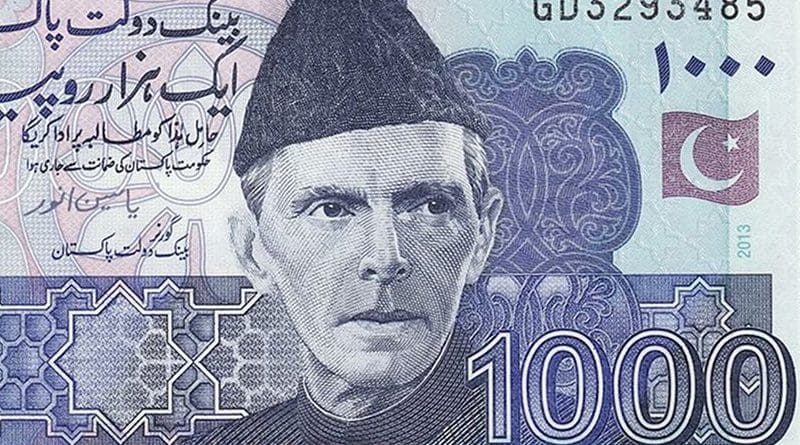Can Economic Reforms Deliver Long-Term Growth For Pakistan? – OpEd
Pakistan’s economic landscape has been fraught with challenges for years, from mounting external debt to rising inflation and a stagnant growth rate. The recent approval of a $7 billion bailout package by the International Monetary Fund (IMF) has been hailed as a lifeline for the struggling economy. However, while the IMF’s financial support offers short-term relief, the long-term benefits of the package hinge on the successful implementation of deep structural reforms. The question remains: can Pakistan leverage this opportunity to steer its economy toward sustainable growth, or will it fall back into the cycle of borrowing and stagnation?
One of the key components of the IMF package is a focus on structural reforms. These reforms target three critical areas: taxation, energy, and state-owned enterprises (SOEs). Pakistan’s taxation system has long been a source of inefficiency and inequality. A narrow tax base, combined with widespread evasion, has hampered the government’s ability to generate revenue. The IMF has called for a broadening of the tax base, increased enforcement against evasion, and a shift towards a more progressive taxation system.
Energy sector reform is another crucial aspect of the IMF package. Pakistan’s energy sector is plagued by inefficiencies, including high levels of circular debt and frequent power outages. The IMF has recommended a shift towards market-based energy pricing and a reduction in subsidies, which could help alleviate the financial burden on the government. However, these reforms are likely to face political resistance, as subsidy cuts and price increases are often unpopular with the public.
Finally, the IMF package calls for reforms in state-owned enterprises (SOEs). Many of Pakistan’s SOEs, including Pakistan International Airlines (PIA) and the power sector, are financial liabilities due to mismanagement and corruption. Privatizing or restructuring these entities could help reduce the fiscal drag on the economy, but such reforms will require strong political will and the ability to overcome entrenched interests.
One of the most immediate concerns for Pakistan is inflation. Over the past few years, the country has experienced double-digit inflation, with prices for basic goods and services rising at an alarming rate. To combat this, the IMF has recommended monetary tightening—raising interest rates to curb inflation by reducing the money supply. While this may help stabilize prices in the long term, it also carries short-term risks, particularly for businesses and consumers.
Higher interest rates can make borrowing more expensive, which could stifle business investment and slow economic growth. Additionally, inflation control measures can disproportionately affect low-income households, who are already struggling with rising costs of living. The IMF package includes provisions for social safety nets, such as increased spending on health and education, as well as direct cash transfers to vulnerable populations. However, the effectiveness of these safety nets depends on their efficient implementation, which has been a challenge in the past.
Perhaps the biggest obstacle to the success of the IMF package is political instability. Structural reforms require not only economic foresight but also strong political will. With elections on the horizon, there is a risk that political parties may prioritize short-term populist measures over long-term economic stability. For example, while tax reform is necessary to boost revenue, raising taxes is often an unpopular move that can cost political capital. Similarly, energy sector reforms that involve subsidy cuts are likely to face public opposition, particularly if they lead to higher utility bills.
The success of the IMF package will depend largely on the government’s ability to maintain a long-term focus on economic stability, rather than succumbing to the pressures of electoral politics. Pakistan has a history of abandoning reform efforts in favor of short-term political gains, and this time may be no different. However, if Pakistan’s leadership can rise above these challenges, the reforms introduced under the IMF program could lay the foundation for sustained economic growth.
The IMF package represents a critical opportunity for Pakistan to address its long-standing economic challenges. However, the success of this program will depend on the government’s ability to implement the required reforms and maintain fiscal discipline. The package’s focus on structural reforms, inflation control, and social safety nets provides a roadmap for long-term stability, but these measures are not without risks. Political commitment and public support will be essential to ensuring the success of these reforms.
While the IMF package offers short-term relief, Pakistan’s long-term economic future will depend on its ability to diversify its economy, reduce its reliance on external debt, and build a more sustainable growth model. The road ahead is difficult, but with the right policies and political will, Pakistan can emerge from this crisis stronger and more resilient. Whether the country can seize this opportunity remains to be seen, but the stakes could not be higher.

